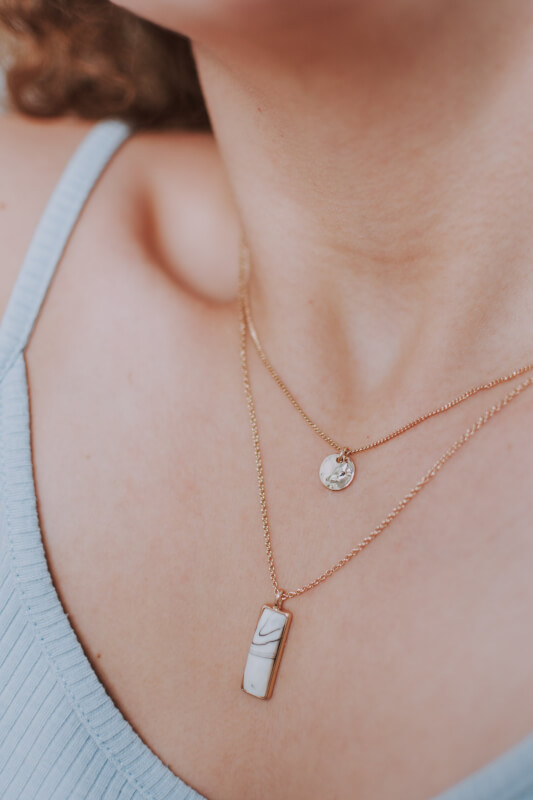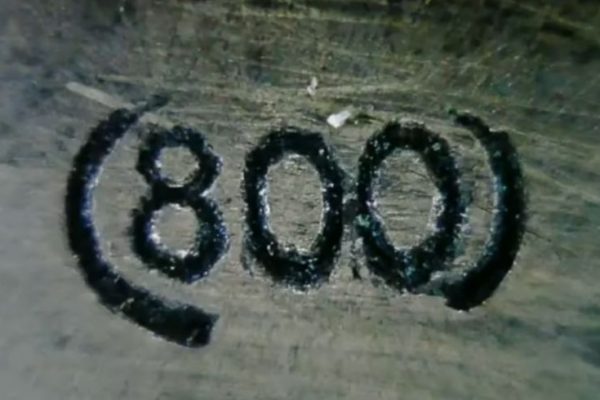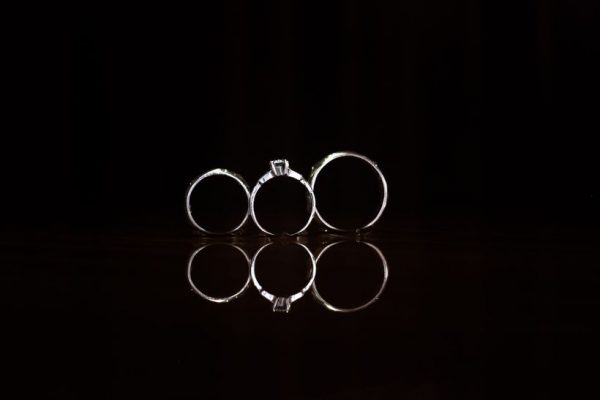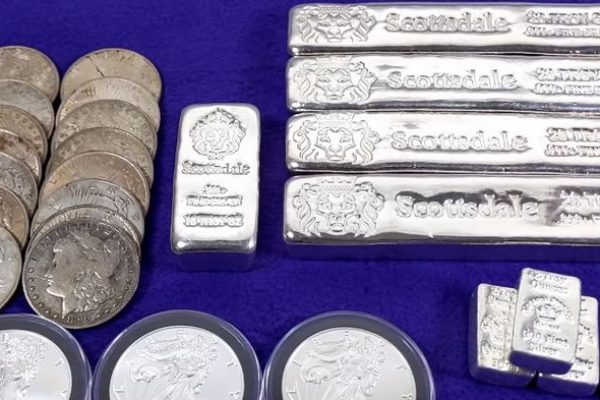Wearing jewelry chains has always been a popular way to accessorize.
But sometimes, after wearing a chain for a while, you may notice that the skin around your neck starts to turn green.
This is a common problem, and here’s what you need to know.
Green Neck From Chain: Common Reasons
The most common cause of a green neck from a chain is actually from the metal itself.
Certain metals, when they come into contact with the skin, can cause a chemical reaction that results in a greenish discoloration.
So, the green discoloration is caused by a reaction between the body’s chemistry and the metals in the jewelry, referred to as “green neck” or “verdigris.”

So, why jewelry chain turns skin green?
Moisture
Moisture is one of the main causes of tarnish on all metals, and it can also cause a green discoloration on some metals.
If your skin is particularly sweaty, or you live in a humid climate, this could be the cause of your problem.
Chemicals
Certain chemicals can also cause a green discoloration on metals.
This is most commonly seen with chlorine, which is found in swimming pools.
If you’ve been swimming and notice a green discoloration on your skin or jewelry, it’s likely from the chlorine.
Other chemicals include body lotions and oils, soaps and detergents, hairspray and other hair products, perfume and cologne.
Allergic Reaction to Metal
Some people may be allergic or sensitive to certain metals, which can cause a green discoloration when the metal comes into contact with the skin.
How to Prevent Chain From Turning Your Neck Green?
Even though green tarnish is generally not harmful, it can be a huge inconvenience and source of embarrassment. Thankfully, there are simple prevention methods.
Limit contact with moisture
Moisture is one of the primary causes of tarnish, so it only stands to reason that limiting your exposure to it can help.
So when you take a shower or swim, avoid wearing any jewelry. Instead, take off your chain before you get in the water, and put it back on once you’re dried off.
Keep it clean
Give it a gentle wipe down with a jewelry cleaning cloth every few days. If it starts to look dull, you can give it a more thorough cleaning using warm water and dish soap.
Store it properly
Store it in a dry, airtight container. This will help prevent tarnish by keeping moisture and oxygen away from the metal.
You can find small jewelry boxes or pouches at most stores that sell jewelry.
Apply a clear coating
If you want an extra layer of protection, you can apply a clear nail polish or lacquer to your chain.
This will create a barrier between the metal and the air, which can help prevent tarnish. Just be sure to reapply every few weeks, or whenever the coating starts to wear off.
What Kind of Chains Make Your Neck Green?
The kind of chains that make your neck green are typically made of cheap metals that contain high levels of corrosive.
The most common type of chain that causes this is copper chains.
Copper is a metal that is easily corroded, and when it reacts with water or the oils and sweat on your skin, it can cause a green discoloration.
Green Neck From Fake Chain: Is It Possible?
Yes, fake chains can make your neck green. The metals in jewelry themselves are a major cause of green tarnish forming and getting on your neck.
Fake jewelry is made from cheap materials meant to imitate good and silver.
Some jewelry are made from a base metal then plated with gold, for instance.
So if you’re going to be wearing jewelry, make sure it’s the real thing.
How to Tell if a Chain Is Fake?
The magnet test
Real jewelry pieces are not attracted to magnets, while fake jewelry is.
If you have a strong magnet, bring it close to your piece of jewelry. If the jewelry moves towards the magnet, then it is most likely fake.
The look and feel test
If you’re looking at a piece of jewelry that’s made from gold or silver, pick it up and hold it in your hand.
Real gold and silver are dense, so they should feel heavy for their size.
If the piece you’re holding feels light or flimsy, then it is most likely fake.
The acid test
Put on a pair of gloves to protect your hands, and then use a dropper to place a drop of acid onto the jewelry.
If the jewelry is made from real gold or silver, the acid will not react.
If the piece is fake, the acid will cause it to change color.

Will Sterling Silver Turn Your Neck Green?
No, with proper care it won’t.
Sterling silver is made of 92.5% silver and 7.5% other metals (usually copper), so it’s not pure silver.
The other metals in sterling silver can react with oxygen and moisture in the air to cause tarnishing, which may give the silver a greenish tint.
However, this is not due to the silver itself turning green, but rather the formation of silver chloride on the surface of the silver.
Silver chloride is harmless and can be removed with a simple cleaning.
Cleaning tips include:
- Use a jewelry cleaning cloth or brush to remove surface dirt and grime.
- Soak your chain in a jewelry cleaning solution for a few minutes, then rinse with clean water and dry thoroughly.
- You can use a jewelry cleaning solution that contains ammonia. Be sure to follow the instructions.
Final Words
In conclusion, green neck from a chain is typically caused by the metal content in the jewelry that may be prone to tarnish or oxidization.
So be sure to research your jewelry before purchasing, and look for high quality materials that won’t cause skin irritation.
If you’ve already purchased it and are experiencing green neck, try cleaning jewelry with a mild soap and water solution.
If that doesn’t work, you may need to consult a jeweler about getting the piece replated or replaced.
Did this article help? Please leave a comment after sharing!






